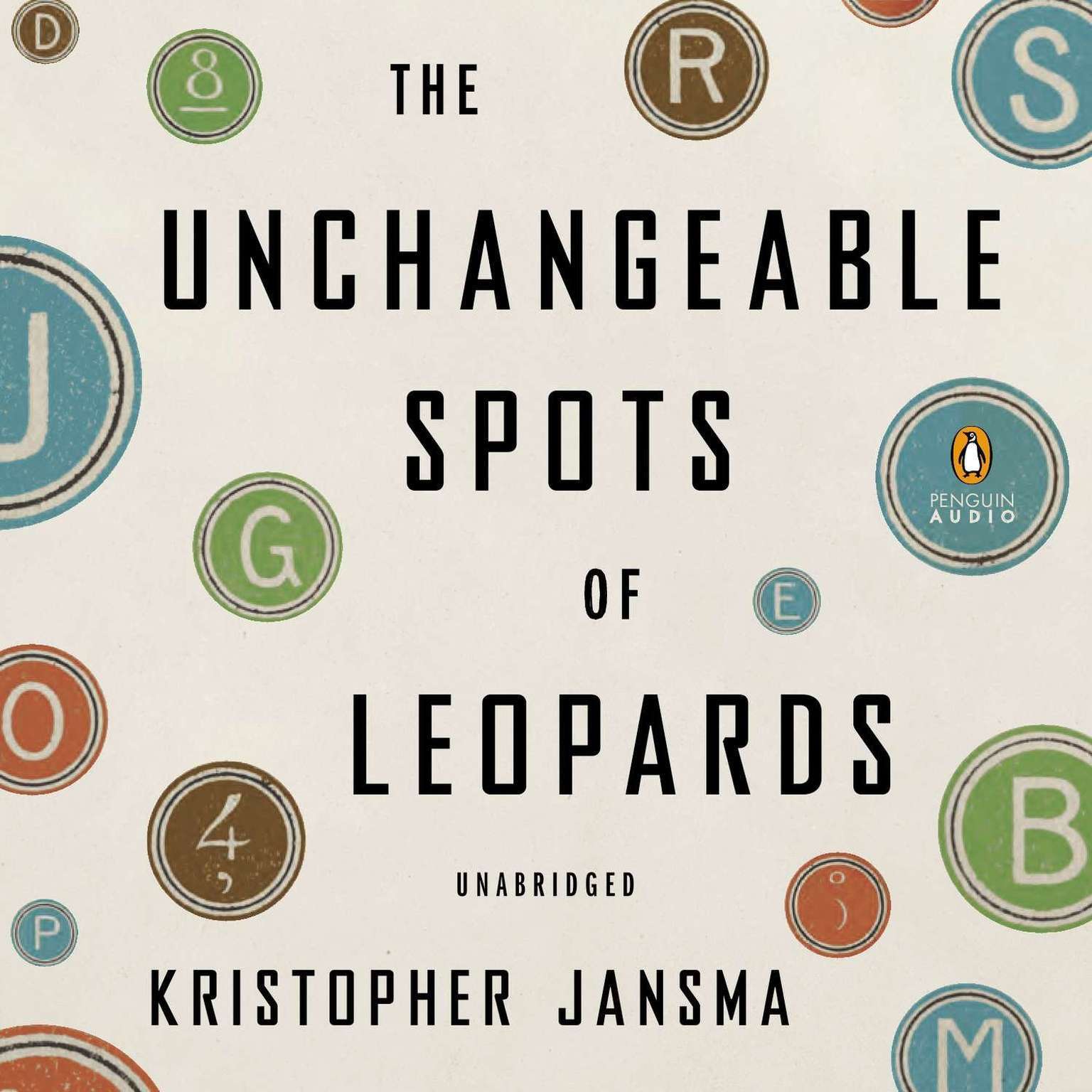The Unchangeable Spots of Leopards, by Kristopher Jansma
You know you’re in for an interesting reading experience when you find, nestled between the Table of Contents and the first page, this simple note: “If you believe that you are the author of this book, please contact Haslett & Grouse Publishers (New York, New York) at your first convenience.”
What follows is an incredibly well constructed and fluid tale – or better yet, tales – of one man and the three muses that spur him forward: a writer who is both a friend and his main competition, a femme fatale at the center of his world, and the stories that he is constantly losing.

That is the story of how I lost my very first book. I’ve lost three others since – a novel, a novella, and a biography. The first is disintegrating steadily at the bottom of a black lake. The second is in the hands of a woman whom I love and will never see again. The third is in a dusty African landfill, wrapped in the bloody tatters of my tweed coat, my gold watch still in the pocket.
But at the epicenter of all these stories – and they are separate stories, yet absolutely entwined with each other – is that they, as per the advice of the central character’s college professor, all tell the truth but “tell it slant”. Each different chapter, each different story, if you wish, “are,” as the writer puts it, “all true, but only somewhere else.” And it’s this off-balance relation that keeps the novel vital.
The central character, this writer, is never conclusively named. He’s certainly not Walter Hartright, the spontaneous alias he gives when posing as an impromptu escort at a debutante ball, nor is he Timothy Wallace (a moniker he stole from an absent roommate whose name happened to be on the lease). He could be Outis, but only because that is an internet handle, specifically chosen to thwart documentation. But his lack of a name is not a deliberate bid at being coy (or is it?). He simply is the “I” in the stories.
Likewise the other recurring-esque characters are synonymous in demeanor if not in packaging. Is the Julian who is the college roommate the consummate writer Jeffrey, and is the subject of one of the lost stories, Anton, nonfiction instead? Or is Anton the fictionalization of Julian who becomes Jeffrey as his fame spreads? Or was there no Julian or Jeffrey or Anton, merely foils to the central character’s imagination?
It would be very confusing if Mr. Jansma was not so brilliant in laying it out in novel form. These stories have indeed been written slant; they clearly relate to each other and use items and images and shared bits of situations in ways that go further than “clever”, they hinge on unlooked for parallels that reveal unexpected yet intrinsic insights into not just what is next, but quite possibly what has come before. Or are they simply conventions to be used?
“It’s fiction!” he shouted. “She’s just this character to you. Both of us are! And we always have been. You don’t know what goes on in our heads. You don’t know where we came from or who we are… Can you even tell the difference anymore between what you’ve written about her and who she really, truly is?”
Can he indeed? (Should he?) Or is it precisely because he does know these things (he’s invented these things?) that makes the novel so moving? It depends on where and what you are reading, for while it may not seem like it in a remote review, the story resonates so deeply… somewhere else. And it does so without eureka moments, without face palming; with simple dawning realization, and appreciation for a writer’s craft -both fictional and real.
I did struggle with the blithe movement of the main characters from exotic location to even more exotic location, often without concern or a sense of wonderment on what brought them there. While perhaps is understandable on the part of main characters, there is still a feeling of crass entitlement that is somewhat banal. (“You are…” – the guard had begun, communing quickly with his brethren to be sure he had the English correct – “… not expected.” “I’m Jeffrey Oakes!” he had cried as we were escorted away. “I’ve never been expected in my entire life!”)
But perhaps that’s the point. Perhaps that’s part of the slant. Blocking an intersection in a rustic upstate New York town while struggling to open a crate of exclusive Russian caviar discovered in the trunk of a sleek Jaguar that the owner doesn’t even know how to drive, and then eating said $2,000-a-tin caviar with their fingers while sitting on the hood of the Jaguar by the side of the road in the middle of winter while listening to a tape of Fiddler on the Roof may – or may not – speak to depth of character.
The Unchangeable Spots of Leopards is a masterful work of complex yet accessible storytelling, and in the end it doesn’t really matter which parts are real because it all does ring true, even if that truth is found somewhere else.
If you read it, you’ll understand – and enjoy.
—Sharon Browning

